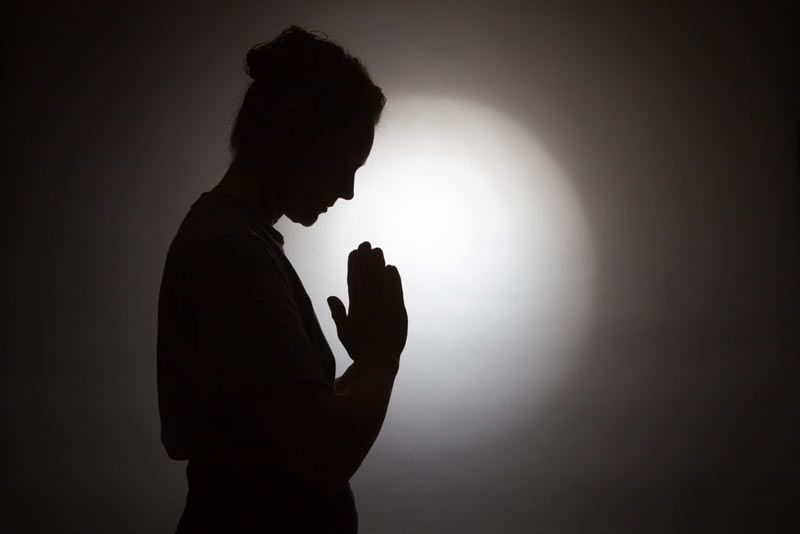The Most Religious US State Is ...

Mississippi holds onto its title as most religious U.S. state, with 58 percent of its residents saying they are very religious, according to a Gallup poll released Wednesday (Feb. 13).
The least religious state? Vermont.
About 40 percent of Americans said they were "very religious," meaning religion is an important part of their daily life and that they attend religious services every week or nearly every week. Some 31 percent indicated they were nonreligious, or that religion wasn't an important part of their daily life and they seldom or never attend such services.
The 10 most and least religious states remained relatively constant from the 2011 numbers, with the only change being the inclusion of Hawaii in the least religious list in place of New York. [See full list of U.S. states and religiosity]
As expected, the South dominated the "most religious" list, while all of the New England states were represented in the top 12 least religious states' list. For instance, while just 14 percent of Alabama residents indicated they were nonreligious, 50 percent of those in New Hampshire said the same. (In addition to very religious and nonreligious, Gallup also had a "moderately religious" category.) Utah, which has a large Mormon population, and Oklahoma, which straddles the border between the South and the Midwest, were the only exceptions to the dominantly Southern states in the top 10 list.
Top 10 most religious states
- Mississippi: 58 percent are very religious
- Utah: 56 percent
- Alabama: 56 percent
- Louisiana: 53 percent
- Arkansas: 52 percent
- South Carolina: 52 percent
- Tennessee: 50 percent
- North Carolina: 50 percent
- Georgia: 48 percent
- Oklahoma: 48 percent
Bottom 10 (least religious states)
Sign up for the Live Science daily newsletter now
Get the world’s most fascinating discoveries delivered straight to your inbox.
- Vermont: 19 percent are very religious
- New Hampshire: 23 percent
- Maine: 24 percent
- Massachusetts: 27 percent
- Oregon: 29 percent
- Rhode Island: 29 percent
- District of Columbia: 30 percent
- Washington (tie): 31 percent
- Connecticut (tie): 31 percent
- Alaska (tie): 31 percent
- Hawaii (tie): 31 percent
- Nevada (tie): 31 percent
The differences in religiosity across the United States may not be the result of underlying demographics (race or ethnicity) or religious identities (Catholic or Protestant majorities, for instance), but rather part of a state-level cultural phenomenon.
Something about the state's culture, based partly on that state's history, may be behind residents' religiosity, Gallup suggests. "In other words, it can be hypothesized that a person moving to Mississippi is more likely to become personally more religious than if that same person moved to Vermont," Gallup officials write in a statement.
While overall seven in 10 Americans said they were either moderately or very religious, other Gallup poll results reported in January have shown a rise in "no religious identification" over time.
"Americans' expression of an explicit religious identity in response to a survey interviewer's question is one of many measures of religiosity, although by no means a definitive measure of a person's religiousness or spirituality," Gallup states. "The rise in 'nones' partly reflects changes in the general pattern of expression of religion in American society today — particularly including trends towards more 'unbranded,' casual, informal religion."
The just-released state-religion results are based on more than 348,000 interviews with adults ages 18 and older conducted from Jan. 1 to Dec. 31, 2012, as part of Gallup Daily tracking. The results were weighted to be representative of each state's adult population by gender, age, race, Hispanic ethnicity and education, based on Census data.
Editor's Note: This article was updated to correct a sentence about the number of least religious states in New England.
Follow LiveScience on Twitter @livescience. We're also on Facebook & Google+.
Jeanna Bryner is managing editor of Scientific American. Previously she was editor in chief of Live Science and, prior to that, an editor at Scholastic's Science World magazine. Bryner has an English degree from Salisbury University, a master's degree in biogeochemistry and environmental sciences from the University of Maryland and a graduate science journalism degree from New York University. She has worked as a biologist in Florida, where she monitored wetlands and did field surveys for endangered species, including the gorgeous Florida Scrub Jay. She also received an ocean sciences journalism fellowship from the Woods Hole Oceanographic Institution. She is a firm believer that science is for everyone and that just about everything can be viewed through the lens of science.











